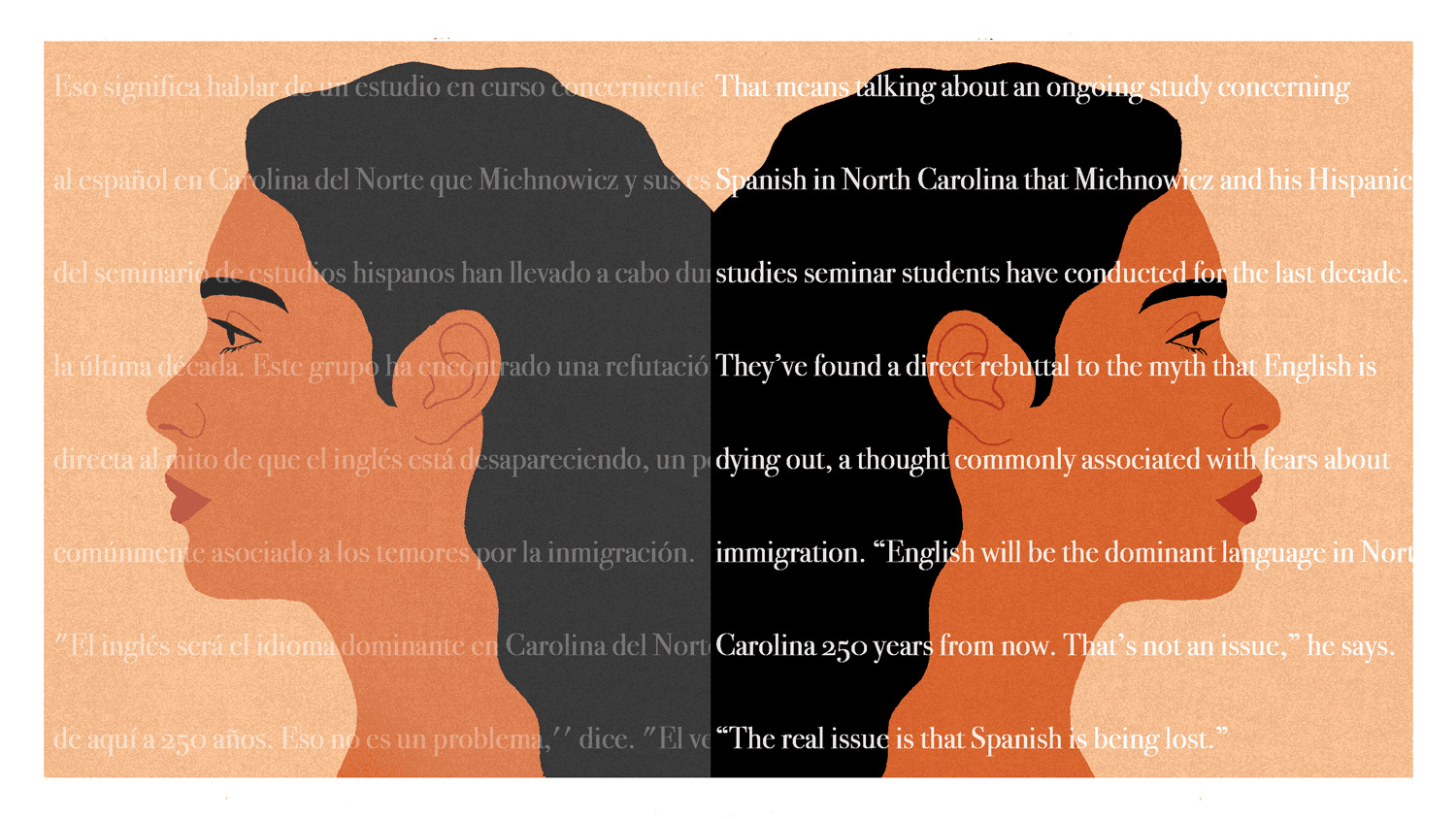All Talk
An ongoing study reveals Spanish is in danger of disappearing in North Carolina.

Jim Michnowicz regularly goes to La Fiesta del Pueblo, Raleigh’s annual Latinx celebration, to connect with the Latino community. “We go over language myths. We play language games,” says Michnowicz, a professor and director of graduate programs in the Department of Foreign Languages and Literatures. “And we also talk to people about our research.”
That means talking about an ongoing study concerning Spanish in North Carolina that Michnowicz and his Hispanic studies seminar students have conducted for the last decade. They’ve found a direct rebuttal to the myth that English is dying out, a thought commonly associated with fears about immigration. “English will be the dominant language in North Carolina 250 years from now. That’s not an issue,” Michnowicz says. “The real issue is that Spanish is being lost.”
Undergraduate students collect surveys detailing Spanish speakers’ attitudes and what language they use in different settings, like at work and with family and friends, while graduate students examine more technical issues. The findings reveal Spanish speakers in North Carolina are leaving the language and moving to English quicker than Hispanic people did in California, the southwestern United States, Chicago and New York in the 1940s, ’50s and ’60s. Michnowicz says if immigration ended today, “by 2050, there wouldn’t be Spanish spoken in North Carolina.”
Michnowicz believes preserving Spanish is important for Hispanic families to communicate with each other across multiple generations, as well as for the concrete benefits of a bilingual society. “Being bilingual staves off dementia,” Michnowicz says. “Being bilingual increases your SAT scores. Being bilingual gets you paid more.”
Key to preserving Spanish, Michnowicz says, is to challenge the belief held in the Hispanic community that the Spanish the younger generation speaks “isn’t real Spanish just because it has English influence in it.” Take the word, “alfombra,” the formal Spanish word for “rug.” In the U.S., some speakers use the word “carpeta,” combining English and Spanish. But, he says, by using even that blend, a second- or third-generation Spanish speaker still chooses what for them is a Spanish word.
“If that’s criticized too much at a community level,” he says, “they just say ‘forget it’ and switch to English.”
- Categories:


